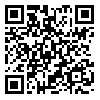Volume 12 -
IJMEHM 2019, 12 - : 161-170 |
Back to browse issues page
Download citation:
BibTeX | RIS | EndNote | Medlars | ProCite | Reference Manager | RefWorks
Send citation to:



BibTeX | RIS | EndNote | Medlars | ProCite | Reference Manager | RefWorks
Send citation to:
Heidari S, Bayati S. The Outcomes of Slang Beliefs in medicine of Qajar Era. IJMEHM 2019; 12 :161-170
URL: http://ijme.tums.ac.ir/article-1-6132-en.html
URL: http://ijme.tums.ac.ir/article-1-6132-en.html
1- Assistant Professor, Department of History, Faculty of Literature and Humanity, Shiraz University, Shiraz, Iran
2- PhD Student of Islam history, Shiraz University, Shiraz, Iran
2- PhD Student of Islam history, Shiraz University, Shiraz, Iran
Abstract: (3316 Views)
Qajar era is very important in Iranian medical history after Islam. Because physicians gradually got away from Sinai medicine and tried to use western modern medicine. One of the major points about medicine of Qajar era was influence of slang beliefs. The present study based on descriptive-analytic method and library compilation is trying to answer this question: what are the outcomes of slang beliefs’ influence on medicine and treatment approaches in Qajar era? The research's achievements show that the important outcome of these slang beliefs was non-acceptance of modern therapeutic approaches by many people, as they preferred to be treated based on slang beliefs instead of taking medicines and using modern therapeutic approaches.
Type of Study: Review |
Subject:
History of Medicine
Received: 2019/05/4 | Accepted: 2019/07/29 | Published: 2019/03/15
Received: 2019/05/4 | Accepted: 2019/07/29 | Published: 2019/03/15
| Rights and permissions | |
 |
This work is licensed under a Creative Commons Attribution-NonCommercial 4.0 International License. |





